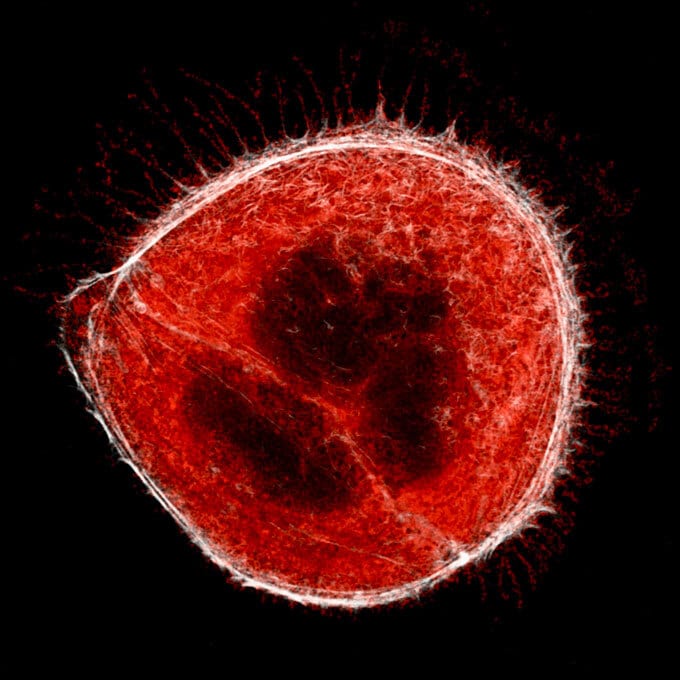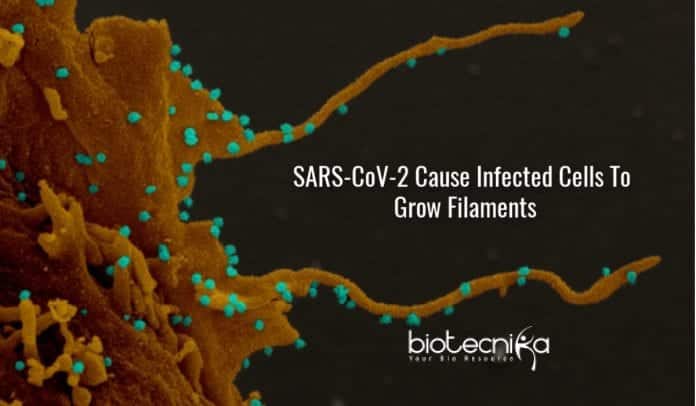Filopodia In Coronavirus Infected Cells Are Unusually Higher In Number
A scientific paper published in Cell on June 28 report that human cells infected with the novel coronavirus SARS-CoV-2 form more numerous and longer extremities, called filopodia, than the normal cells. The presence of this filopodia in monkey cells was confirmed using high-resolution electron microscopy. They also observed SARS-CoV-2 viral particles budding from the projections. This new discovery could help in developing future antiviral therapies as these protrusions may have unidentified roles in spreading coronavirus.
Structures similar to such spindly projections are also found on some healthy cells, which serve different functions. For example, filopodia help repair cells to detect chemical cues to navigate to wound sites.
Robert Grosse, a cell biologist at the University of Freiburg in Germany, said the protrusions are highways for transport. The novel coronavirus can cause the infected cell to form hairlike projections that extend from the cell surfaces, which may play a crucial role in SARS-CoV-2 spread in the body.

Mark Denison, a virologist at Vanderbilt University Medical Center in Nashville, who was
not involved in the study, said further research is required to understand the role of filopodia in COVID-19 infection in detail. Insight into whether these cell-to-cell connections affect the viral spread can be provided by the microscopy of infected cells over time.Researchers identified a protein called CK2 in the filopodia. They found that cells exposed to a CK2-inhibiting molecule named silmitasertib in clinical trials for different cancers were more resistant to the novel coronavirus compared to the untreated counterparts. This may imply that CK2 could be a target for future studies aiming to develop treatments for COVID-19.
COVID-19 has infected more than 14 million people, causing 617,254 deaths around the world.






























